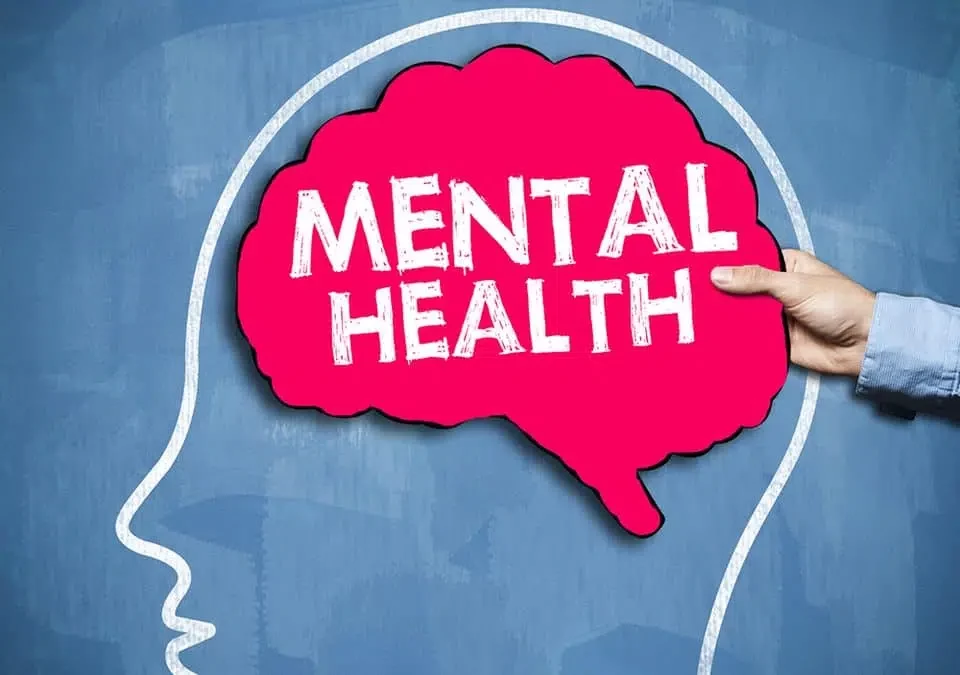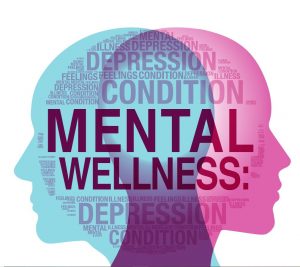Why is Mental Health Important? Mental wellness is important. However, taking care of our mental health helps us to be resilient and recover from whatever happened. Read further to see reasons why mental health is important.
Why is Mental Health Important?
Our emotional, psychological, and social well-being all contribute to our mental health. It influences how we think, feel, and act as we deal with life’s challenges.
It also influences how we deal with stress, interact with people, and make decisions. Mental health is essential throughout life, from childhood and adolescence through adulthood and aging.
Anyone can have a terrible day, but it does not imply that they have a horrible life. What matters is how we respond to it and take care of our mental health.
Mental wellness is essential at all stages of life. It covers our whole well-being and influences our lives in a variety of ways.
What Causes Mental Illness?
The mental disease does not have a single cause. A variety of factors, such as age, might increase one’s chance of developing mental illness.
Early adversity in life, such as trauma or a history of abuse (for example, child abuse, sexual assault, witnessing violence, etc.)
Other persistent (chronic) medical illnesses, such as cancer or diabetes, have resulted in similar experiences.
- Brain biological factors or chemical imbalances
- Use of alcoholic beverages or illegal substances
- Feelings of solitude or loneliness
10 Reasons Why Mental Health is Important
Below are 10 reasons why mental health is so important:
1. Physical Health is Influenced by Mental Health
We would not blame someone who has cancer for having the sickness in their bodies. So, why do we stigmatize and blame mental health problems on the brain?
Mental illness is as serious as any disease, and it may claim one’s life just as quickly.
Suicidal ideation and attempt might occur as a result of depression, for example. If we simply focus on our physical health, we are not balanced persons.
The mind and the body are inextricably linked. Many mental illnesses result in stress, which weakens the immune system. This causes increased sickness and an inability to cope.
Stress and worry may have a negative impact on our physical health.
2. To Live Better Lives, We Must Liminate Stigma and Shame:
It’s critical to talk about mental health so that others may do the same.
According to Psych Central, when we feel embarrassed about ourselves, it is because we believe we are damaged or not normal. When we have poor self-esteem, it hinders our capacity to deal.
Turning such sentiments around is part of the healing process. Our flaws do not imply a lack of merit. When we recognize this, we may assist people in turning these sentiments around and accepting themselves.
Shame breeds stigma. Shame encourages negative actions. Destructive actions lead to a decline in self-esteem.
When we don’t talk about mental health and its importance, stigma spreads.
Those who are mentally sick must, in the end, receive therapy. However, without raising awareness and removing the stigma associated with their ailment, people will be hesitant to seek assistance.
This reinforces the stigma and fosters further suffering and humiliation. We give something more power when we don’t get to speak it.
3. Mental Health Has an Impact on Everything
Our mental health has an impact on how we deal with life. In the absence of therapy, people experience hopelessness and melancholy, a sense of worthlessness, guilt, anxiety, concern, dread, and a loss of control.
Our interpersonal ties may deteriorate. In every setting, such as school or job, our performance may suffer. Withdrawal and solitude are possible outcomes.
We may also lose interest in previously enjoyed activities. Task completion and time management may become a problem.
It may also become difficult to concentrate, or one may have rumination and concentrate on cleaning or arranging.
Our connection with food might evolve. We may have ups and downs, and racing thoughts may occur more frequently.
Life may get daunting at times. When we have significant mental health problems, we may lose contact with reality and even hear voices.
Self-harm may occur. Destructive patterns such as alcohol and drug use may strike, and suicidal ideations may be the final result. Overall, if we do not prioritize mental health, everything will fall apart.
4. Emotional Well-Being is Connected to Mental Health.
Every day, how you feel on the inside is as essential as your physical health. Negative thinking might make you feel unhappy, agitated, or disturbed, according to mental health guidelines.
Taking care of our mental health can help us be more productive and efficient at work and in our everyday lives.
We can seek mental health counsel from friends, family, and a psychologist to keep track of our emotional and general well-being.
5. Suicide Rates Can Be Reduced Through Mental Health Awareness
According to the National Alliance on Mental Health (NAMI), 46 percent of persons who commit suicide have a known mental health issue, according to research.
Another research done by the US Department of Health and Human Services discovered that almost 60% of people who committed suicide had a good conditions such as severe depression, bipolar illness, or dysthymia.
This highlights the connection between mental health and suicide, as well as how early medical intervention and self-care may help reduce suicide fatalities.
It is vital to follow the advice in order to keep our mental health in check and to be conscious of the mental health of people around us at all times.
6. Ending Stigma Through Mental Health Awareness
Despite the fact that many people suffer from mental illness, only a tiny number seek treatment due to the stigma attached to it.
This is why raising mental health awareness is vital. The stigma surrounding mental health affects not just the amount of people seeking therapy, but also the resources available for successful treatment.
These may be overwhelming challenges for persons suffering from underlying mental problems.
It can encourage individuals to identify their symptoms, exercise self-care, and seek treatment or medical help if necessary through disseminating mental health information.
READ ALSO!!!
- How to Improve Mental Health
- Music schools in Nigeria
- Aviation schools in Nigeria
- Art courses in Nigeria
7. Community Building is Made Possible by Mental Health Awareness
We can improve support services for those suffering from mental diseases if we aggressively promote the importance of mental health awareness.
It has the ability to create a more tolerant and caring global community, increasing the chances of recovery in cases of mental illness.
Learning about mental health and teaching others about it can help us affect necessary change and heal the earth – one person at a time!
8. Productivity and Financial Stability are Linked to Mental Health.
One of the numerous benefits of maintaining your mental health is that it increases your overall productivity and financial stability.
According to a study published in the American Journal of Psychiatry, persons suffering from significant mental illnesses earn 40% less than those in excellent mental health.
According to the World Health Organization, depression alone accounts for about 200 million missed workdays each year.
It is well understood that poor mental health reduces productivity, which has an influence on financial stability.
It is vital that we address mental health issues in order to ensure great work performance and financial stability.
9. Societal Factors Influence Mental Health
Poor mental health, as previously indicated, can lead to an increase in crime and violence. Children of mentally ill individuals, on the other hand, are more prone to suffer from abuse, neglect, and behavioral disorders.
They are likely to develop into complicated human beings who struggle to acquire societal acceptance and support as they grow older.
It has also been observed that persons suffering from mental illnesses become socially alienated and struggle to maintain a healthy social life.
Finally, mental health issues can have a large societal influence. As a result, learning how to maintain great mental health and seeking medical guidance on the issue is vital.
10. The Quality of Life is influenced by one’s Mental Health.
It is evident from the preceding explanation why it is critical to take care of your mental health.
A sick mind might cause us to lose interest in things we previously loved. It can cause ups and downs and overwhelm us to the point where we are unable to do even the most basic activities.
Untreated mental health is frequently associated with emotions of hopelessness, melancholy, worthlessness, guilt, worry, fear, and a perceived lack of control.
It is critical to recognize these signs and get mental health advice from a qualified practitioner before it is too late.
Signs of Mental Health Problems
When mental health is compromised, it isn’t always apparent to the individual or those around them.
However, there are certain warning signs to look out for, that may signify negative changes in well-being. These include:
- A shift in eating habits, whether excessive or insufficient
- A notable decrease in energy levels
- Being more solitary and withdrawing from others
- Persistence of despair
- Excessive use of alcohol, cigarettes, or other drugs
- Severe mood swings, inexplicable bewilderment, wrath, guilt, or worry
- Fighting with family and friends
- Hearing voices from an unknown source
- Consider self-injury or bringing damage to others.
- Being unable to complete routine things with ease
Benefits of Good Mental Health
The significance of mental health for overall well-being cannot be emphasized, whether young or elderly.
When one’s psychological wellness suffers, it can lead to harmful behaviors that not only harm one’s own health but also jeopardize one’s relationships with others.
Below are some of the benefits of good mental health:
1. A Greater Capability to Deal With Life’s Stressors
When one’s mental and emotional states are at their top, life’s problems might be simpler to conquer.
A stable mental state can support healthy coping techniques when alcohol/drugs, solitude, tantrums, or fighting may have been used to address marital disagreements, financial troubles, work obstacles, and other life concerns.
2. Possessing a Positive Self-Image
Personal sentiments about oneself have a strong correlation with one’s mental health. Your overall mental health influences your self-esteem. Confidence is frequently a sign of a healthy mental condition.
A person with strong mental health is more inclined to focus on the positive aspects of oneself.
They will focus on these characteristics and will typically have goals that aim for healthy, happy existence. 8
3. Better Relationships
If your mental health is in good shape, you may be able to devote more time, affection, and support to your friends and family.
It might be simpler to show up and assist someone you care about when you are not in emotional discomfort.
4. Increased Productivity
Dealing with depression or other mental health issues can have an influence on your productivity.
When you are mentally strong, you are more likely to be able to perform more effectively and offer higher-quality work.
5. Better Life Quality
When your mental health is strong, your quality of life may increase. This may allow for more engagement in community building.
For example, you may start helping at soup kitchens, food drives, shelters, and so forth.
You may also develop new interests, meet new people, and visit new cities.
How to Maintain Mental Health and Well-Being
Because mental health is so vital to overall wellness, it is critical that you take care of your mental health.
A few introductions to and adjustments in lifestyle routines may be necessary to maintain mental health in shape. These are as follows:
- Regular exercise
- On a daily basis, prioritizing relaxation and sleep
- Trying meditation
- Developing coping strategies for life’s issues
- Keeping in contact with loved ones
- Keeping an optimistic view of life
A professional can also help you develop and maintain your mental health. Talk therapy may teach you healthy ways to communicate with people as well as coping methods.
Therapy may also help you address some of your own problematic behaviors and give you the skills you need to make some positive adjustments in your life.
We believe this “Why is Mental Health Important“ has been helpful to you. However, for questions and contributions regarding this article, drop a comment below.
Also, share with family and friends that might be interested in knowing why is mental health important.





